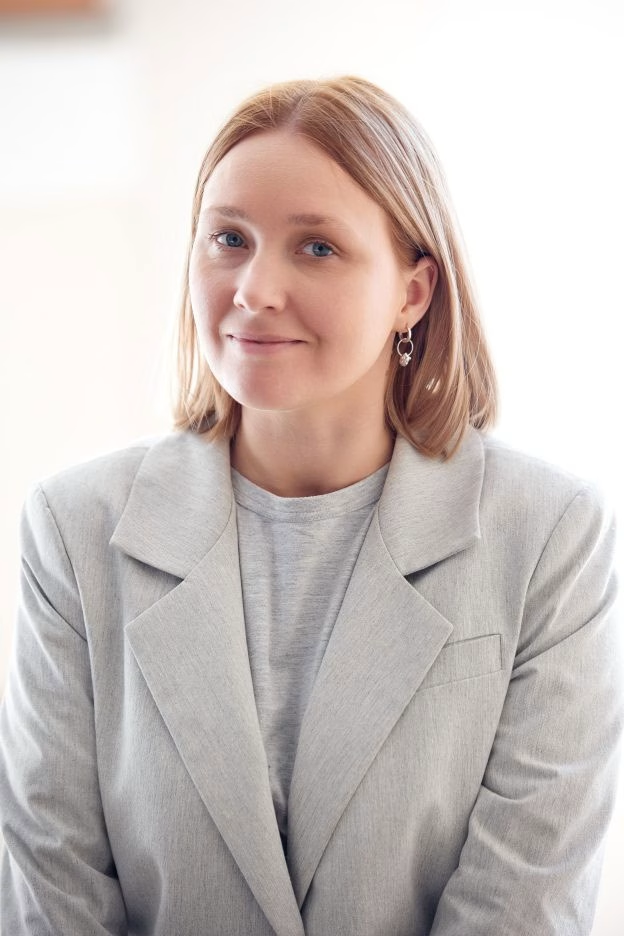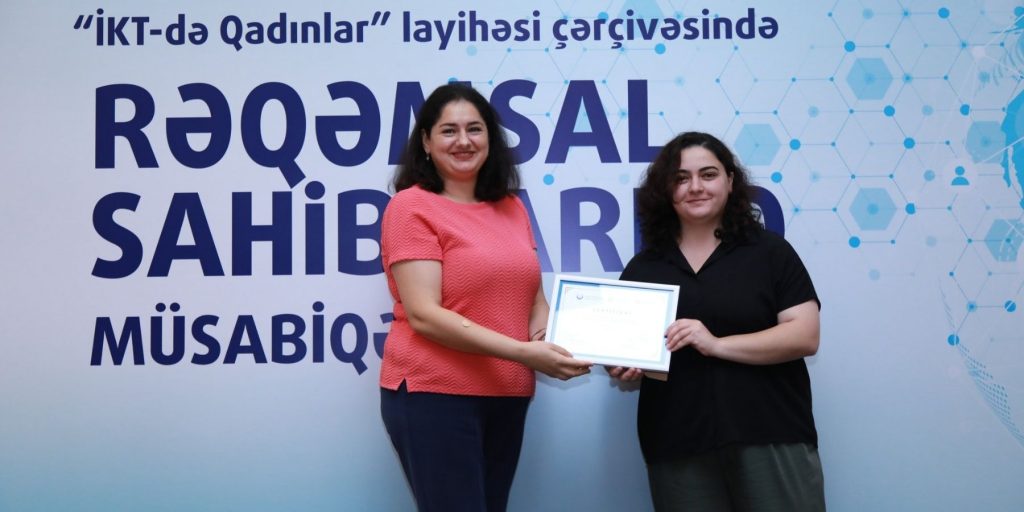
‘Ukrainian women are strong’
Ukraine’s Deputy Minister of Digital Transformation Valeriya Ionan is putting her entrepreneurial experience to good use at the country’s most dynamic and innovative ministry.
The Ministry of Digital Transformation is the youngest in Ukraine, founded in 2019 and staffed – since the very beginning – with young, former entrepreneurs who have been encouraged to bring private sector know-how and working practices into the public sector.
One of those is deputy minister Valeriya Ionan, who has been on board since the very beginning. She says that the ministry is currently “unique” in its flexibility and agility.
“We are results-oriented, which we took from our business past, and will always try to find fresh ideas,” she adds. “But at the same time, we understand the pain points of citizens or other ministries.”
Ionan’s own entrepreneurial path began at the age of 23 when she founded Quadrate 28, which helped SMEs and start-ups to grow by offering service teams on demand. “We grew to 500 clients and 120 staff with no investment,” she says.
Helping SMEs and start-ups remains a key part of Ionan’s role. The Ministry of Digital Transformation wants to help Ukraine become the most attractive ecosystem in Central and Eastern Europe for tech firms and was well on its way to doing so before Russia launched its full-scale invasion of the country in February 2022.
Remarkably, while it has had to constantly pivot to adapt to the changing geopolitical climate, it has continued to develop tools for entrepreneurs and start-ups, as well as govtech know-how that it has begun exporting to other countries, such as the Diia public services app, recently shared with Estonia.
“And this is just the beginning,” says Ionan. “We are having conversations with around 15 countries who are interested in the application and other parts of our ecosystem.”
Importantly – in the context of the Russian invasion and the large numbers of internally displaced people – Ukrainians can use the Diia app to change their registered address, apply for and receive social support, and access aid, and other crucial services. A simplified war-time digital ID has also been created, available to all Diia users and recognised by local law enforcement.
Ukraine has also secured agreements with neighbouring countries to accept digital IDs in lieu of paper documents – invaluable for refugees who might have been unable to gather paper documents during hurried evacuations.
However, as Ionan is keen to point out, Diia is not just a super app and a portal, it’s an ecosystem specifically designed to make starting a business as easy as possible. “New businesses can be registered within minutes,” she adds.

Partnership with Visa
As part of the Diia ecosystem, the ministry has been working with the support of private firms and international companies, including payment giant Visa, on a project called Diia Business: The Development of SMEs.
“The project has two components,” says Ionan. “The first is a one-stop-shop for future and existing entrepreneurs with more than 120 products for our Ukrainian businesses, including free consultations, a marketplace of financial products, an impact investment platform, an experts section – you name it, and you will find it on the platform.”
The second component is a network of offline hubs.
These currently operate in 13 cities in Ukraine, and one was opened last year in Warsaw to support Ukrainians forced to flee their homeland by the invasion and who are now looking to temporarily set up businesses in Poland before getting back to Ukraine.
Then there’s the She’s Next, Empowered by Visa programme, Vidvazhna, an accelerator for Ukrainian women who plan to become entrepreneurs or who already have their own businesses but want to scale it.
“The main idea is to educate 5,000 women online, and around 200 women offline, and offer some of them the possibility to receive micro-grants to either start their business or to scale it,” says Ionan, who admits that the current situation is “very difficult”.
“Last year, around 37 per cent of Ukrainian businesses were closed, because they were either destroyed, or they just could not continue. A lot of businesses had to relocate from one part of Ukraine to another, and they had to start everything from scratch.”
Ionan says that Ukrainian women are “super strong.”
“You see Ukrainian women serving in the armed forces, running their businesses under blackouts, raising kids. It’s really inspiring. But at the same time, it’s hard.”
Ukraine’s future
Ionan is convinced that technology and innovation, and the IT sector, will be crucial for the country’s future once the war with Russia is won. Not merely in terms of how much the sector brings to the country’s economy, but in terms of transparency.
“Digital transformation makes all processes more transparent; we are trying to count the accumulative economic and anti-corruption impact from digital transformation. It has already saved billions of hryvnia and tens of thousands of working hours, and has the potential to save much more,” she says.
The digital transformation also impacts other areas, adds Ionan: education, healthcare, infrastructure, and social affairs. It’s all about making Ukraine attractive for its own citizens – “We want all of our women, all of our men, to come back home,” says Ionan – but also for foreign investors.
“I think that Ukraine can become Europe’s biggest IT hub in so many areas thanks to our Diia.City project. Military tech – a field which has been developed by necessity over the past year – agritech, climate tech, food tech. Ukraine is creating solutions which can change for the better not just our country but the world.”
New Free Courses — Made for Ambitious Women Entrepreneurs!
It’s time to grow smarter, adapt faster, and take your business global.
Explore two powerful courses available exclusively to She’s Next members:
The Reinvention Masterclass for Start-up Founders
Beyond Borders: Building for Global Success
Enroll today — it’s free!






Responses